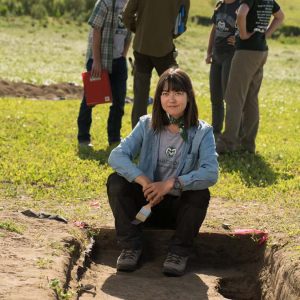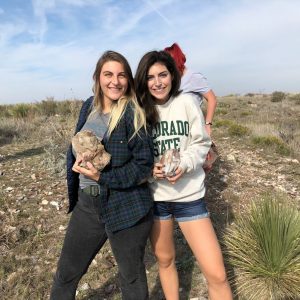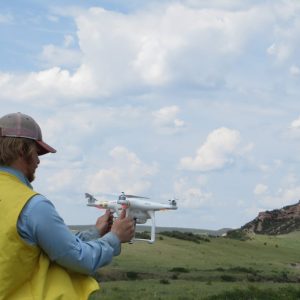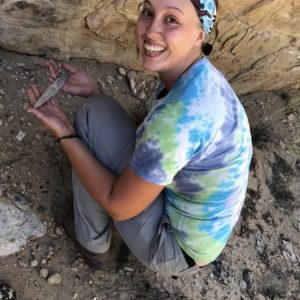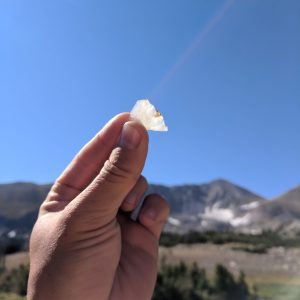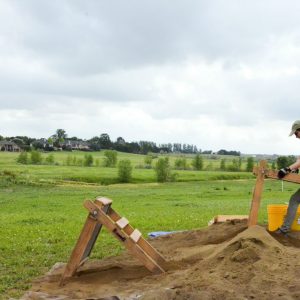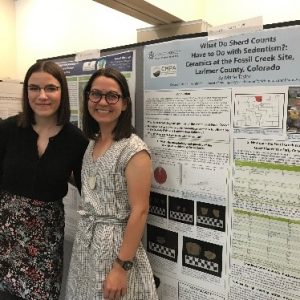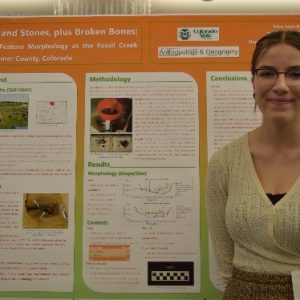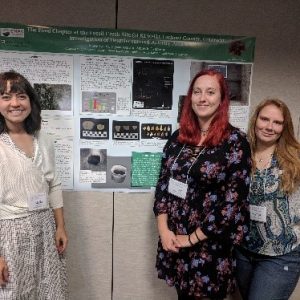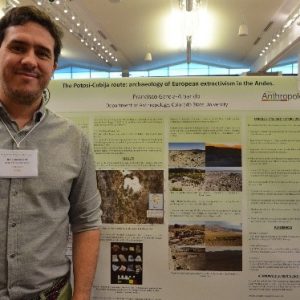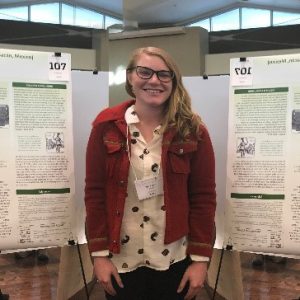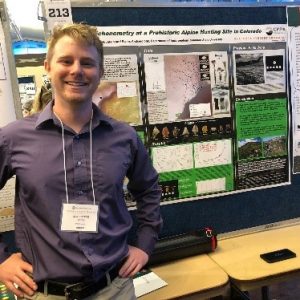Opportunities for Archaeology Students
Archaeology is about recovering the human past and investigating how this past created the foundation for contemporary culture. Through archaeology we can understand how past peoples organized their lives, from customs and belief-systems, subsistence patterns, urban planning to the economic relationships that indigenous communities negotiated with colonial powers. Through artifacts and excavations, archaeologists explore questions that can speak to contemporary social problems.
Initial questions investigated by an archaeologist
Is this object an artifact?
When was this artifact made?
Where was this artifact used?
How was this artifact used?
Broader questions addressed by an archaeologist
- How did ancient people’s interaction with the land shape past cultures?
- What were the social and political dynamics of ancient cultures?
- How did communities in the past respond to climate change?
- Who is responsible for the preservation and management of our shared cultural heritage?
Careers in Archaeology
The graduate in archaeology has the skills and insights to build a career in governmental organizations, cultural resource management (CRM), historical preservation, law, public education, and museum curation. Many questions that we have about the future can be addressed by investigating archaeological evidence of the past.
Check out our suggestions for paths to success and careers in archaeology.
Archaeology Paths to Success
The following are examples of course sequences that a student may want to take to prepare them for specific jobs or careers
The listed courses for particular career paths are suggestions only. Be sure to seek the advice of Keri Canada, your Academic Success Coordinator, as well as your professors to help you choose courses best suited for your career endeavors. Consult the CSU Course Catalog to ensure you are meeting degree requirements. Also, pursue practical experience through field school, practicums, internships, and volunteer opportunities.
In addition to taking the required courses for an anthropology major with a concentration in archaeology, the sections below illustrate other courses useful to specific career paths.
National Park Service
- ANTH 260 - Introduction to Field Archaeology
- ANTH 281A2 - Introduction to Museum Studies
- ANTH 360 - Archaeological Investigation
- ANTH 456 - Archaeology and the Public
- ANTH 458 - Archaeology and Cultural Resource Management
- ANTH 460 - Field Class in Archaeology
- ANTH 461 - Anthropological Report Preparation
- ANTH 462 - Anthropology Curation & Exhibition Methods
- HIST 476 - History of America's National Parks
Archaeological Technicians working for the National Park Service focus on the preservation, conservation, resource management, and interpretation in the national parks throughout the United States. Jobs in this category are found at.
Field Schools
Internships
Museum Curator/Collections Assistant
- ANTH 260 - Introduction to Field Archaeology
- ANTH 281A2 - Introduction to Museum Studies
- ANTH 457 - Lithic Technology
- ANTH 465 - Zooarchaeology
- ANTH 456 - Archaeology and the Public
- ANTH 460 - Field Class in Archaeology
- ANTH 461 - Anthropological Report Preparation
- ANTH 462 - Anthropology Curation & Exhibition Methods
- ART325 - Concepts in Art Education
- HIST 479 - Practice of Public History
- LEAP 300 - Arts Outreach and Community Engagement
Museum curators and collections assistants are tasked with the organization, management, preservation, and interpretation of artifact collections held in museums, repositories, and interpretive centers. Jobs in this category are found at Fort Collins Museum of Discovery, Denver Museum of Nature and Science, Museum Employment Resource Center, and National Center for Preservation Technology Training.
Field Schools
Internships
The archaeology program reflects the overlapping and diverse research interests of our faculty
-
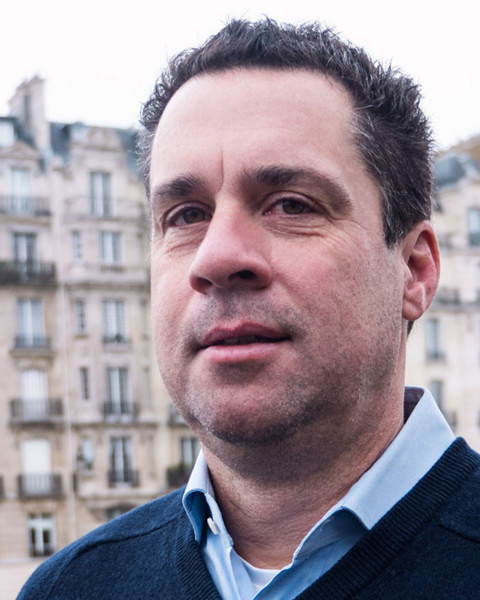
Chris Fisher
- Professor
-
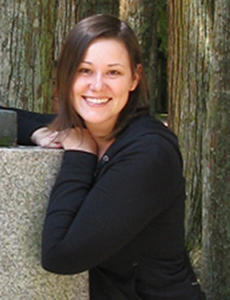
Kristin Gensmer
- Senior Instructor
-
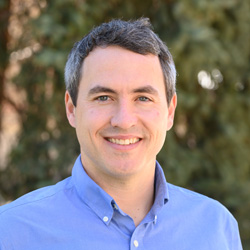
Edward Henry
- Associate Professor
-
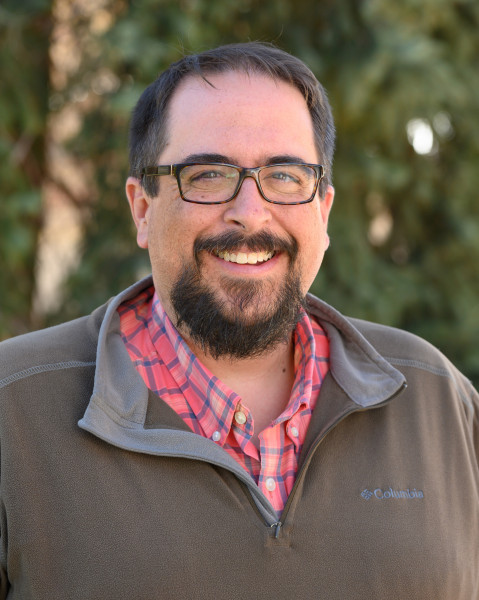
Jason M. LaBelle
- Professor
-
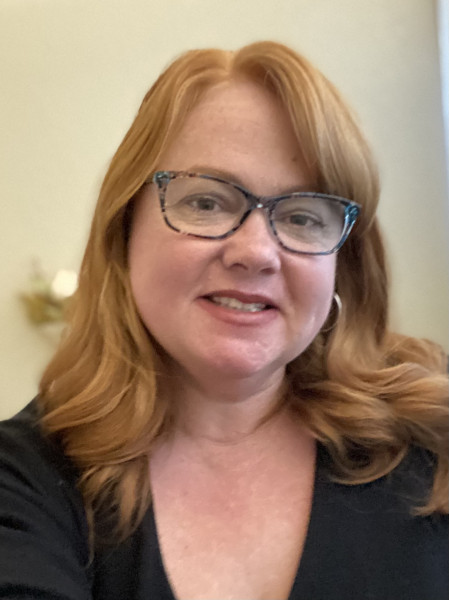
Jeannine Pedersen-Guzmán
- Instructor, Museum Studies
-
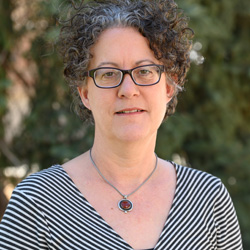
Mary Van Buren
- Professor
-
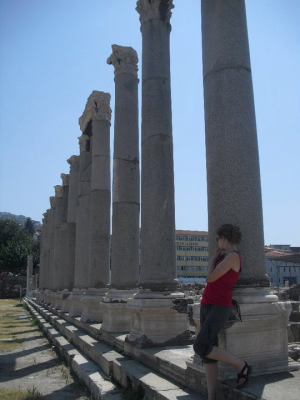
Emily Wilson
- Senior Instructor
Opportunities for Student Engagement
Archaeology at CSU also offers students the opportunities to gain a wide variety of hands-on experience including field schools, internships, practicums, and the development of practical skills such as GIS, artifact curation, geoarchaeological analyses, aerial and terrestrial remote sensing methods, and report writing to name a few.
Archaeology students at CSU are encouraged to engage in research. Faculty-supervised student practicums, research projects and independent studies may concern lab management (museum curation, material processing), lab research (research design, methods, assessment, publication), and training in new technologies (drones, mapping, statistical analysis). These projects are made possible by faculty research facilities.
Our Archaeology Field School course provides experiential immersion in field and lab research methods every summer
The opportunity to engage in original research with faculty mentorship
CSU Archaeology Centers
- Center for Archaeology and Remote Sensing
- Center for Research in Archaeogeophysics and Geoarchaeology
- Center for Mountain and Plains Archaeology
CSU Archaeology Labs
The archaeology program at CSU provides students with opportunities to learn through experience and mentorship. As a result, our graduates have followed paths to successful careers in non-academic and academic fields.
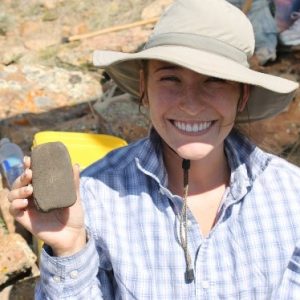
“When I came to Colorado State University in the fall of 2011, I was chosen to work with the Center for Mountain and Plains Archaeology (CMPA) through the Honors Undergraduate Research Scholars program. Under the supervision of Dr. Jason LaBelle, I participated in high elevation archaeology projects on Rollins Pass and was a crewmember at Chimney Hollow Open Space, Roberts Ranch, and Fossil Creek Wetlands Area. When I was not in the field, I could usually be found in the basement of Clark A-wing collecting data in the Archaeological Repository. I often joked that I lived in the laboratory, and at times, this statement wasn’t far from the truth, but I was driven by the prospect of discovery and learning.”
– Ashley Goodfellow (Packard) BA’15, Archaeology Technician, Cultural Surveys Hawaii, Inc.
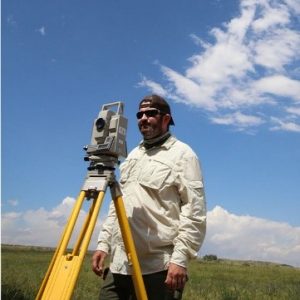
“Without question my time at CSU helped get me where I am today. There are many people in the department to thank for that but first and foremost is Dr. Jason LaBelle whose mentorship, guidance, and friendship was a driving force that challenged me to become a better archaeologist and anthropologist. Jason helped to open many doors, including working with the public, giving public and professional presentations, and helping to mentor and train undergraduate students volunteering in the CMPA lab as well as on my thesis research. I will always treasurer my time in the department and the many friends I made along the way. My advice to current students, both graduate and undergraduate, is to take ownership of your education. Get involved, seek out ways to volunteer for different projects or in different labs, explore your career, and take advantage of the many opportunities available to you at CSU. Your time to be free, to explore new ideas, to sit down and read a journal article, or sit in the lab and debate a variety of topics with your peers is precious and fleeting; take advantage of this time and become an active participant in your education.”
– Chris Johnston MA’16, Operations Director, Paleocultural Research Group
